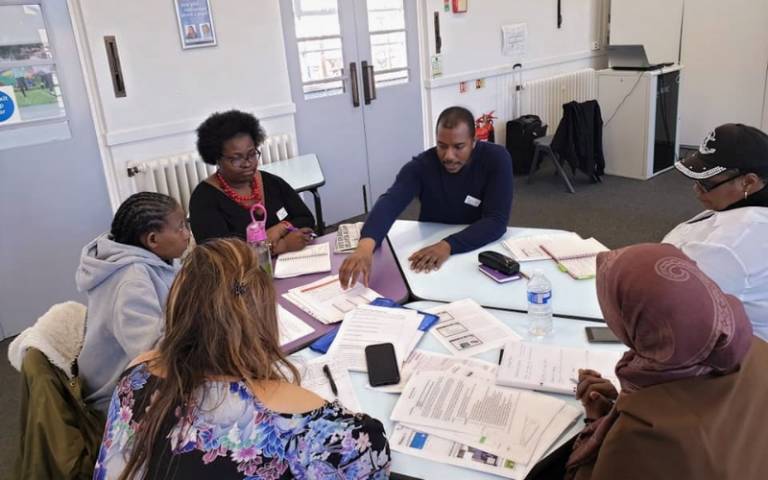New report finds DEC/BAME groups were hit harder by lockdown but benefited from financial education
25 September 2020
New research by the UCL Institute for Global Prosperity in collaboration with Money A+E shows that Londoners from Diverse Ethnic Communities were disproportionately affected by the economic impacts of lockdown but that individuals’ situations were improved by financial education

Just under one third (30%) of respondents to the report survey, conducted in July 2020 among previous users of Money A+E services, reported not paying rent at some point during lockdown.
The majority of Money A+E’s service users are non-White British, and the organisation provides money advice and education services in Newham – one of the local areas hit hardest by the virus (144.3 deaths per 100,000 people in April 2020 – Guardian) – and other deprived London boroughs.
Nearly one quarter (23%) reported having services (gas, electricity or internet) turned off during the same period. This is significantly higher than the national average of one in nine (11%) who are reported to have fallen behind on bills (Citizens Advice).
The survey showed that money management skills had a positive impact on respondents’ lives during lockdown, with 60% of respondents stating that Money A+E’s advice and education had helped their financial situation.
The report also reveals that 30% of survey respondents were unemployed – a figure far in excess of the national unemployment rate of 4.1% during May-July 2020 (ONS) – and that 45% of this group had been made redundant during the lockdown period.
The report suggests that Diverse Ethnic Communities (DEC) are most at risk of the effects of the coming second wave of redundancies and recession, and that there is an urgent need to address these inequalities with financial education at the heart of solutions.
Read the full report (pdf)
This report reveals that the challenges to prosperity posed to Diverse Ethnic Communities by Covid-19 impact on multiple, interconnected aspects of life and livelihood. The impact of Money A+E’s work provides evidence that locally embedded service providers, attuned to the composition and needs of their communities, provide a crucial resource for building back better and enhancing inclusive and sustainable prosperity – which goes beyond just monetary wealth – for individuals, families and communities.’ Dr Christopher Harker, Associate Professor, UCL Institute for Global Prosperity
This report highlights the devastating effects during the Covid-19 pandemic of the longstanding inequalities faced by Diverse Ethnic Communities in housing, employment and health outcomes. More action is needed from all sectors to address these inequities, and money management is one solution as a key life skill that makes us more able to cope in times of crisis. We urgently need more support for financial education for DECs as they are most at risk of the predicted second wave of redundancies and severe recession.’ Jerry During, Money A+E CEO
This research is part of a three year collaboration between the UCL Institute for Global Prosperity (IGP) and Money A+E
Image: Jerry During leads Money Mentors workshop (credit: Money A+E)
This article is re-published with the kind permission of Money A+E
 Close
Close

